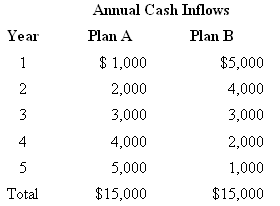Exercises in compound interest, no income taxes. To be sure that you understand how to use the
Question:
Exercises in compound interest, no income taxes. To be sure that you understand how to use the tables in Appendix B at the end of this book, solve the following exercises. Ignore income tax considerations. The correct answers, rounded to the nearest dollar, appear on pages 766—767.
1. You have just won $5,000. How much money will you accumulate at the end of 10 years if you invest it at 6% compounded annually? At 14%?
2. Ten years from now, the unpaid principal of the mortgage on your house will be $89,550. How much do you need to invest today at 6% interest compounded annually to accumulate the $89,550 in 10 years?
3. If the unpaid mortgage on your house in 10 years will be $89,550, how much money do you need to invest at the end of each year at 6% to accumulate exactly this amount at the end of the tenth year?
4. You plan to save $5,000 of your earnings at the end of each year for the next 10 years. How much money will you accumulate at the end of the tenth year if you invest your savings compounded at 12% per year?
5. You have just turned 65 and an endowment insurance policy has paid you a lump sum of $200,000. If you invest the sum at 6%, how much money can you withdraw from your account in equal amounts at the end of each year so that at the end of 10 years (age 75) there will be nothing left?
6. You have estimated that for the first 10 years after you retire you will need a cash inflow of $50,000 at the end of each year. How much money do you need to invest at 6% at your retirement age to obtain this annual cash inflow? At 20%?
7. The following table shows two schedules of prospective operating cash inflows, each of which requires the same net initial investment of $10,000 now:

The required rate of return is 6% compounded annually. All cash inflows occur at the end of each year. In terms of net present value, which plan is more desirable? Show your computations.
Net Present ValueWhat is NPV? The net present value is an important tool for capital budgeting decision to assess that an investment in a project is worthwhile or not? The net present value of a project is calculated before taking up the investment decision at...
Step by Step Answer:

Cost Accounting A Managerial Emphasis
ISBN: 978-0136126638
13th Edition
Authors: Charles T. Horngren, Srikant M.Dater, George Foster, Madhav





